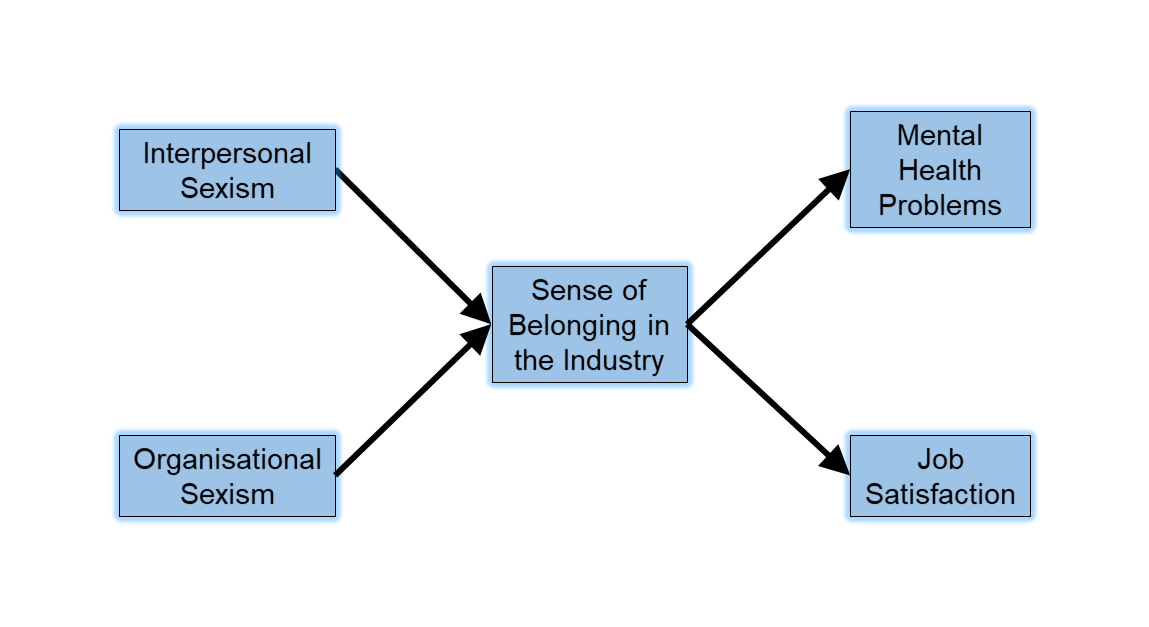The research is in: Feeling a sense of belonging is key.I worked in an almost exclusively male salesroom. Sexual comments about me or others, either to me or overheard in my presence, were a fact of daily working life.
Anonymous testimony submitted to the TUC & The Everyday Sexism Project (2016)
Sexism against women in the workplace can occur on at least two levels. On the interpersonal level, sexism might take the form of, for example, an inappropriate comment about a woman’s appearance, a sexist joke, or inappropriate touching. On the organizational level, sexism might take the form of women receiving lower wages, less stable jobs, or fewer opportunities for promotion.
Sexism has been shown to reduce women’s mental health and job satisfaction. For example, in one study, my colleagues and I surveyed 263 women miners from an Australian-based mining company and found that both interpersonal and organizational sexism were negatively related to mental health and job satisfaction. More recently, we found similar results in second study of 190 women from a large Australian trade union that represented mainly male‐dominated jobs.

But our research has gone a little further than past work in this area by investigating the psychological mechanism that may underlie these associations. Both of our studies point to sense of belonging as a key explanatory variable. In particular, our results are consistent with the idea that sexism has negative effects on mental health and job satisfaction because it reduces women’s sense of belonging in the workplace and the industry more broadly. So, for example, we found that women who reported experiences of sexism in the workplace also tended to agree less with items such as “I felt accepted by my co‐workers,” “I received good support from my co‐workers,” and “I felt a sense of belonging in the industry.” This relative lack of acceptance, support, and belonging then predicted women’s greater tendencies towards depression, anxiety, stress, and job dissatisfaction.

It is important to note that our study’s research design does not allow clear conclusions about the causal direction of the associations between the variables that we studied. For example, perhaps women who are more depressed feel less of a sense of belonging at work as a result. However, a tentative implication of our research is that strategies that help women to integrate more thoroughly into the workplace, and develop a greater sense of belonging, may help to increase their mental health and job satisfaction.
Follow us here and subscribe here for all the latest news on how you can keep Thriving.
Stay up to date or catch-up on all our podcasts with Arianna Huffington here.


